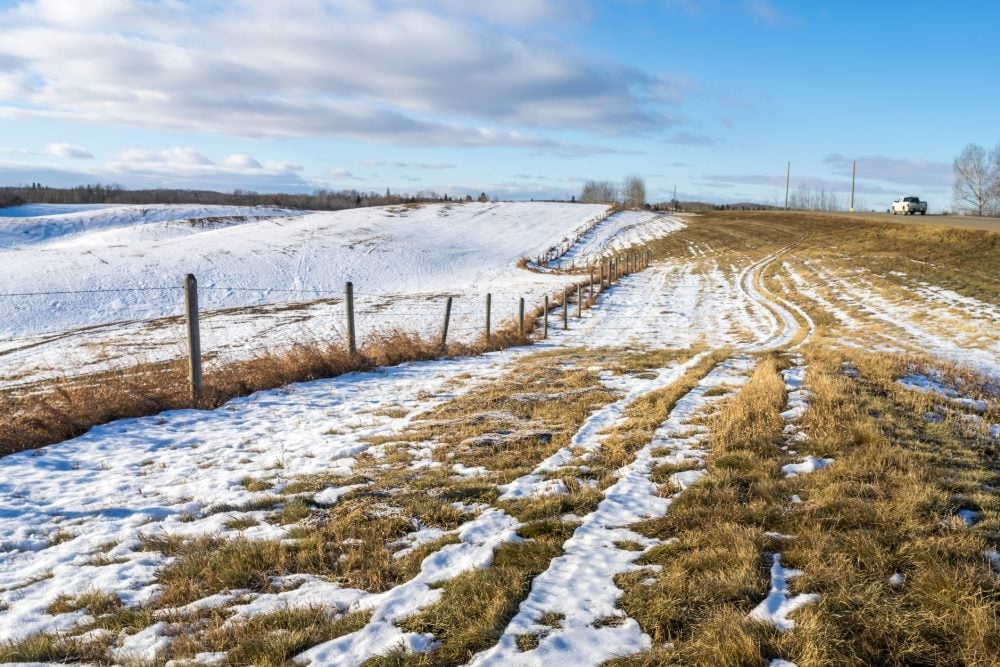Another leading weather service is calling for an unusually mild, dry winter on the Canadian Prairies this winter.
Accuweather.com has issued a long-term forecast calling for dry, mild conditions across most of Western Canada’s grain growing regions.
“Drier and milder weather will be a dominant theme across the prairie region this winter as the polar jet stream gets displaced further to the north,” Accuweather said in a Canadian winter forecast issued Oct. 22.
“This pattern will greatly limit the amount and duration of arctic air masses that normally impact the region.”
Accuweather said average temperatures across the West could be as much as 3 C above normal this winter, adding that “significant snowfall events will be few and far between across the region.”
Weather prognositcators throughout North America have been monitoring an unusually strong El Nino event for several months.
That event is expected to be one of the key factors influencing North American weather conditions between now and next spring.
Water temperatures in the Pacific Ocean are two to three degrees higher than normal at tropical latitudes this fall, indicating a high potential for abnormally mild winter conditions in Canada and the northern United States.
Tom Di Liberto, a meteorologist from the National Oceanic and Atmospheric Administration (NOAA), said the current El Nino event is one of the top three observed in the past 60 years or so.
Read Also

Dryness, drought likely to persist says forecaster
As winter approaches, the dry conditions and drought across much of the Canadian Prairies and the United States Plains will likely persist, said Drew Lerner, meteorologist with World Weather Inc. in Overland Park, Kan.
The only two stronger El Nino events occurred in 1997-98 and in 1982-83, he said.
In Western Canada, the potential impact on agricultural productivity will vary from region to region, depending on precipitation levels over the next few months and residual soil moisture reserves.
David Phillips, a senior meteorologist with Environment Canada, said strong El Nino events usually result in milder winter temperatures and less precipitation in Western Canada, but not always.
Six of the last seven so-called Super El Nino events resulted in milder winter temperatures in Western Canada, Phillips said.
But only five of the last seven Super El Ninos resulted in lower-than-average precipitation.
Phillips said El Nino events generally allow forecasters to predict long-term weather conditions with greater certainty and accuracy.
The stronger the El Nino, the greater the level of confidence among weather forecasters.
For western Canadian farmers, the strong likelihood of a mild, dry winter could be detrimental to overall agricultural productivity.
However, the increased certainty of a mild, dry winter should also allow producers to manage their risk by adjusting cropping strategies, tweaking planting dates and planning marketing activities well in advance of planting.
Milder winter temperatures could also affect purchasing decisions for key farm inputs, including fuel, he said.
In addition to mild prairie conditions, Accuweather also predicted an increased risk of ice storms in Ontario and Quebec this winter.
De Liberto said NOAA’s winter weather outlook is calling for cooler, wetter-than-normal conditions in the southern United States from southern and central California to Texas and Florida.
brian.cross@producer.com

















